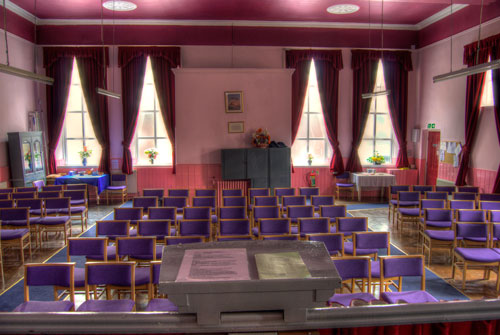|

Affiliated to the
Spiritualists' National Union
Registered Charity No:
1160420
Copyright © 2002 - 2025 Heber Street Spiritualist Society
This website was launched on 6th November 2002.
Version 2.0
The site is best viewed using a screen resolution of 1024 x 768 or better.
Website designed and maintained by Ken Latta
|
|


The philosophy of Spiritualism is founded on seven basic principles. These seven principles were derived via the mediumship of Emma Harding Britten, one of spiritualisms great pioneers, who was inspired in 1871 by communicating with the spirit of Robert Owen, who, when on the physical plane, was founder of the Co-Operative movement. The Seven Principles are there to act as a guideline for ones own personal philosophy on how to live ones life.
Below is a brief explanation of the Seven Principles:
-
The Fatherhood of God
This principle is quite simply, the expression of our belief in the creative power of the deity. Its implication is that we, as individuals, may have a personal relationship with God, however we may interpret His role in our lives and in the universe.
We are taught that whilst God has a 'paternal' aspect we can also relate to a 'maternal' aspect, as expressed in the concept of a 'Divine Parent', a role attributed to God in addition to that of 'Supreme Being'
|
-
The Brotherhood of Man
In accepting belief in the first principle it naturally follows that all living creatures are children of God and therefore our relationship with all other members of this implied 'family' is, or should be, a fraternal one.
Our acceptance of this principle transcends differences of race, colour or creed and, some have argued, should transcend differences of species as well - but that is a matter for the individual which cannot be generalised.
What is important is that in our acceptance of our fraternity we recognise our responsibility for our fellow beings and our subsequent equality with them in matters of basic rights and justice. Therefore the Spiritualist must accept that all men are his brothers, all women are his sisters and all children are his children.
|
-
The Communion of Spirits and the Ministry of Angels
It is without conviction that the spirits of the 'so called' dead are, given the right circumstances, able and willing to communicate with us, either directly or indirectly through a medium.
We are also, whether aware of it or not, in direct receipt of the ministry, or teachings, of those more advanced or 'higher' souls who very often assume the role of the traditional 'Guardian Angel' or 'Spirit Guide'.
We are taught that the term 'Angel' does not relate to the traditional 'winged figure' with harp and halo, but rather to spirit beings who, either through time or experience, have become much more highly evolved and knowledgeable in a spiritual sense than those beings whom we normally refer to as 'spirits' who tend to be people we have known.
|
-
The continuous existence of the human soul
Quite simply, a statement of our belief that our soul survives the death of our physical body with reason, memory and personality intact and that our soul will continue to exist in a non-physical world.
|
-
Personal responsibility
It is this principle that illustrates quite clearly why spiritualists are not, and cannot be, believers in the dogma of Christianity. We are taught that we are each solely responsible for our deeds and actions throughout our lives and that we shall be held directly accountable for them in the future.
We do not accept the dogma of 'vicarious atonement for sin' as taught by the Christian Church, rather believing that we are our own saviours and redeemers by virtue of recognising our faults and correcting them or learning from them.
|
-
Compensation and retribution hereafter for all the good and evil deeds done on Earth
This principle is an expression of our belief in the universal law of 'cause and effect'. Its implications are that our status in our next life will very much depend upon the quality of the life we have spent in our present world. The basic concepts of this is expressed by the saying 'as we sow, so shall we reap.'
Quality of life has nothing to do with material gain or possessions but rather the spiritual qualities with which we can enrich our lives, both present and future, by doing good. If we choose to do ill then this will also be reflected in our present and future spiritual status.
It is often argued that many do not have the choice of doing good or ill and that circumstances dictate our actions. In these cases the previous principle of 'Personal Responsibility' comes into play and it is for each of us to choose which path we will follow.
|
-
Eternal progress open to every human soul
If we accept that we will live forever, it naturally follows that we can, if we choose, continue to learn and grow in experience and understanding. The possibilities for every higher degrees of spiritual evolution are and will be continually open to us and it will be for us to decide how far and how quickly we wish to go, but it must be remembered that the road to progress begins here, in the physical world.
|
|
|
Reference: Spiritualists' National Union Affiliated Body Membership Book |
|
|




